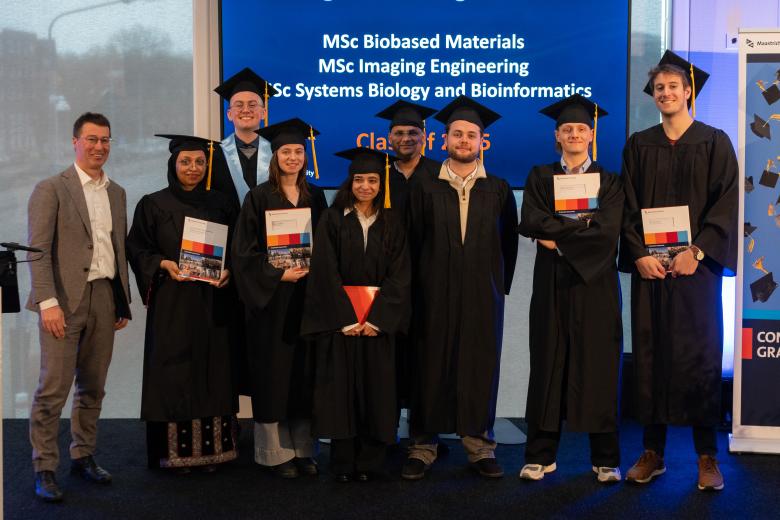Sabine van Rijt receives prestigious ERC Grant for her research on biomaterials
Sabine van Rijt, principal investigator at Maastricht University’s MERLN Institute, has received a prestigious European grant of two million euros for her research project Nano4Bone. Her team is developing biomaterials for use in the treatment of cancer patients who have had surgery to remove diseased bone. The materials promote new bone growth and at the same time render any residual tumour cells harmless. The ERC Consolidator Grant has a term of five years.
Bone cancer
Although bone cancer is a relatively rare form of cancer, the condition has a major impact on patients. The diseased bone is usually surgically removed, and the remaining tumour cells are then often irradiated. Once the tumour has been removed, the bone has to be repaired, but sometimes this is not possible. Scientists have already developed various materials that can stimulate regrowth in the remaining bone, but they are not suitable for use in this specific patient group.
Until now, the materials that have been developed generally lack sufficient mechanical strength or bioactivity. Van Rijt now believes she has found a way to develop biomaterials that not only generate new tissue but are also mechanically stronger. In addition, the new biomaterials will be able to self-repair themselves when damaged.
Nanoparticles
In general, biomaterials that are able to repair themselves consist of polymers held together by a reversible chemical bond. This means they are flexible enough to be injected into the patient. Van Rijt aims to make biomaterials that are not only flexible enough for injection, but also mechanically strong enough for application in hard tissue, such as bone. She will achieve this by adding nanoparticles that are able to hold polymers together via multiple dynamic bonds, which makes the material stronger.
‘I want to investigate how we can manipulate the kinetics of the bonds between polymers and nanoparticles in such a way that the new biomaterials are mechanically strong, but can also easily adapt to the body,’ Van Rijt says. ‘What’s more, the nanoparticles must be able to give instructions to cells in the body to initiate bone repair and remove residual tumour cells. The project is aimed at optimising these biomaterials for bone cancer patients, but I expect they will eventually also be more widely applicable in other tissues and organs.’
Also read
-
Green school playgrounds boost concentration and wellbeing
Children at schools with green playgrounds are better able to concentrate and display more social behaviour. This is the conclusion of a follow-up study within the long-running project The Healthy Primary School of the Future .
-
Ron Heeren appointed fellow of the Netherlands Academy of Engineering
Professor Ron Heeren, distinguished university professor at Maastricht University (UM) and director of the Maastricht MultiModal Molecular Imaging Institute (M4i), was appointed as a fellow of the Netherlands Academy of Engineering (NAE) on Thursday 11 December.
-
Mental health services urgently need to address lifestyle
Mental health services need to increase investment in lifestyle interventions to improve care and narrow the 15-year life-expectancy gap for people with mental health conditions, according to a new report by The Lancet Psychiatry Commission . Maastricht University scientist Jeroen Deenik is one of the...